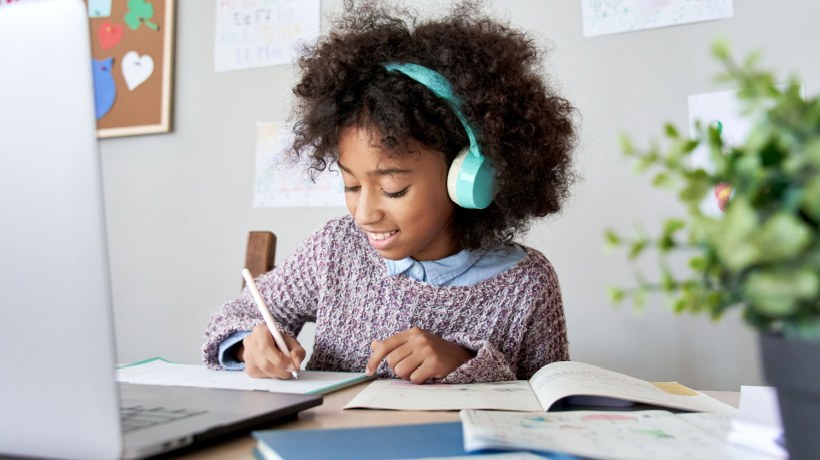The Impact Of Virtual Classrooms On Young Learners
Nowadays, kids can explore geography through Virtual Reality adventures and learn math through captivating multimedia elements. Plus, students from all over the world can work together and share ideas. But here's the thing: kids today grow up in a totally different world than their parents. They're digital natives who can use tech like it's no big deal. That's why teachers and parents need to understand how technology can help children learn and grow. Let's explore how kids behave in virtual classrooms and see how to use technology to help their academic success.
How Kids Often Perceive Virtual Learning
As we mentioned, kids nowadays can easily navigate technology because they were born in a digital era. So, it wasn't particularly tough to switch to a virtual classroom during the pandemic. They adapted quickly, having spent all their lives using screens. It's safe to say, then, that virtual learning isn't something modern kids are not comfortable with; on the contrary, it's known territory, and it seems like it's here to stay.
However, the concept of virtual classrooms has its fair share of issues. Children often feel overwhelmed the first time they log in and see all their classmates online and might fail to distinguish that it's not playtime. And it can be hard for teachers to establish discipline from afar, at least at first. Not to mention that technical problems, like slow connections, lack of audio, and camera glitching, lead to confusion and distraction. Let's focus on the flip side, though, and see how virtual education impacts kids positively once the challenges are effectively faced.
Benefits Of Virtual Education For Children
Flexibility
Online lessons have made learning more accessible and convenient for everyone. Children can easily attend online lessons on their laptops or tablets, which means they don't have to miss out on learning even when they're out and about or feel sick. They can even attend lessons while they are on family vacations or when their parents bring them along at work. All they need is a strong internet connection and a mobile phone, tablet, or laptop. Plus, with online lessons, kids can take control of their own learning and study at their own pace.
Modern Skills Development
Although young learners are familiar with technology since their toddler years, it's important to keep enhancing their digital and technical skills. For example, most communications are online, and engaging in virtual learning will help prepare them for this as they connect with their peers and teachers through learning platforms. Let's not forget that as they navigate different tools and become proficient in using them, they also learn valuable computer and internet skills that will serve them well in the future. Whether a child goes on to pursue a career in technology or not, having a solid understanding of how to use digital tools, such as Learning Management Systems, and navigate the internet is crucial in nearly every job.
Confidence
Some students feel too shy to actively participate in class when they're physically there. It can be tough for them to feel comfortable speaking up in a room full of people. However, with online learning, they can join discussions or share their thoughts through chatting features. This can be a great way for introverted students to feel more at ease and engage with their classmates in a way that feels comfortable for them. Also, some kids perform better in quieter environments, and a virtual classroom is perfect for that. Learning from home can be a great way to eliminate distractions and create a more comfortable space for introverted students.
Critical Thinking Skills
Virtual learning can offer kids an opportunity to make new friends from different backgrounds. These new friends could share some exciting perspectives that children may not have thought of before. This is great because it encourages children to explore their minds and ask questions that may change the way they see things, and is excellent practice for them to develop and express their own ideas and opinions. Moreover, virtual classrooms can offer anytime access to learning resources, which allows them to explore different pieces of information and concepts, thus enhancing their critical thinking skills.
Independence
Online learning allows kids to move at their own pace since they don't always have a teacher constantly reminding them to behave or finish their assignments. They'll need to learn to become more independent and self-motivated. However, as they become more comfortable with online learning, they'll start to make decisions on their own and take ownership of their education. They will eventually grow independent enough to manage their time, logging in to classes without assistance, which is a valuable ability that will help them far into life.
Conclusion
Young learners should receive education in a form that accommodates their technologically bound lives and equips them with the future's in-demand skills. Kids are going to experience the rise of many new technologies and innovations, and virtual classrooms are the perfect environment to prepare them for that.

